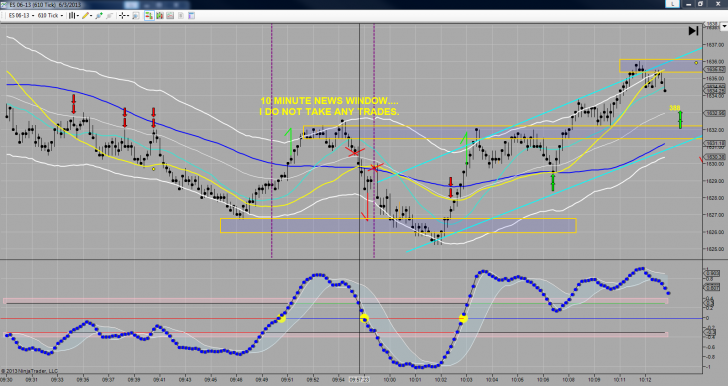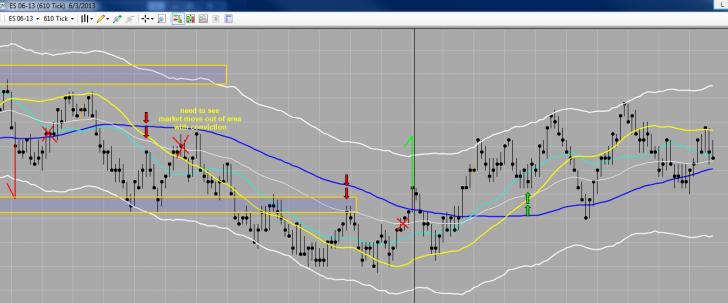“Houston we have a problem.” This famous line was said by pilot Jack Swigert during the infamous Apollo 13 moon mission. Today at DTA we had our own mission control problem. As we started our live market class, DTA commander Marcello had a technical problem which prevented him from having the class.
Lucky for him, he has trained a small army of professional traders that can step in without skipping a beat and teach the class at a moments notice. And what a class it was. It’s awesome when the market offers so many trading opportunities. But more importantly it offered a great number of invaluable lessons on the psychological aspect of trading.
Many traders tend to underestimate the absolute importance of this aspect of trading. As mentioned today was a great day full of at least anywhere from 8-12 opportunities….we were busy to say the least. So needless to say the charts are pretty much self explanatory.
In this post, however, I’d like to share some of the invaluable trading psychology lessons we covered today. As we all should be aware of, trading is not about points or money. Trading is about making the right decisions and making these decisions consistently. Without consistently following our trading plan we sabotage our edge in the market.
Case in point is the long trade at 10:08.
After the market bounced off the support at about the 1626.00 area I was looking for the pull back after the strong run. The first pull back did not reach our area and it could not break through the 1632.00 area. My plan says in this case, if the market retraces wait for a bit more confirmation.

In this case, the confirmation is a slow down on the 233 chart. Once I see this confirmation I quickly pull the trigger without hesitation. The problem was that the confirmation never materialized and the market took off without me. The truth is most traders would be upset because they did not participate in the trade. As for me I don’t frankly care what happens with this trade…….why? Because I knew that the trade working out was one of the scenarios that could’ve played out. The other being that I would fail. But here is the secret…..in my experience this type of trade has a higher probability of failing than succeeding. It is probabilities game to begin with….so why take trades with a low probability yield?
The better question is this…..how will you handle this type of scenario the next time?
Are you going to remember this last time that it worked out and go against the proven probabilities or are you going to make the same decision again? This my friends is what separates the consistent trader from the inconsistent traders. Even when you are aware of this, your mind has a way of playing tricks on you. Is this going to cause you to jump blindly into the next trade to make up for what you missed?
Are you going to push the market and be super aggressive? What if you just had two losing trades in a row, how would this affect your thought process?
A similar example happened today at about 11:17. This was the second valid trade that set once the market shifted momentum to the downside. The first trade no brainer, pull back after quick, strong pop pull the trigger and cash in.
I took profit at the support area and was okay if it continued. If it continued I would just go short again on a subsequent pull back. But it did not continue and it created a double bottom at a support area. It popped strongly off the area and I decided before hand that if this happened I would pass on the trade and let the market show me clearly what direction it wanted to continue in….are you going to continue to the upside or are you changing direction.
In this case the market bounce off the our area and ran to the downside. Again was I upset that I missed and apparently good trade? Absolutely not…I had anticipated the potential outcomes and decided that I could pass on this trade for extra confirmation and just wait for the next short set up. That’s what I did and took the next trade at 11:31.

In trading you will pass on many trades that go on to become winners, but on the other hand you will avoid a greater number of trades that go on to fail. That sound pretty easy in theory, but the key is, how does your mind handle this? How are you going to react the next time you are faced with this scenario?
My friends the answer to this question has an enormous impact on your bottom line.
You need to train your mind to overrule the emotions that will inevitably create conflict in your decision making process. Conflict creates uncertainty and uncertainty leads to fear. Our brains cannot tell the difference between fear and uncertainty so it goes into survival mode….fight or flight!!!!! In either of those states of mind you become wood for the chipper…….sauce for the spaghetti…….shark bait…….deer in the headlights….I think you get the point. In future post I hope to expand more on these concepts and provide some practical lessons that can help you.
Click here to see the complete list of Market Recaps

